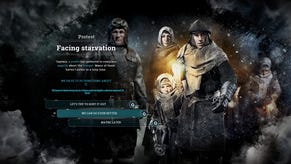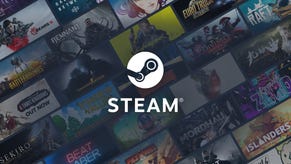Console war is "totally irrelevant" - Sorenson
THQ's head of worldwide studios insists the company is focused on opportunities, not who's winning the next-gen race
THQ executive Jack Sorenson has branded the hardware battle between Sony, Microsoft and Nintendo as "totally irrelevant", arguing that the rewards offered by each represent a "win" for games publishers.
Speaking to GamesIndustry.biz last week at THQ's product showcase in San Francisco, the US publisher's head of worldwide studios said there was "too much of an emphasis on the sports aspect of who's winning and losing", and that his company was focusing on opportunities rather than installed base.
"I think [the console war] is totally irrelevant. Even in the history of the business, other than something like the Dreamcast, you can do decent business on lots of platforms," he explained. "So the issue is not who wins, it's can an independent publisher do a good business on that platform. We're thinking everything from high-end MMO all the way to cell phones."
Pointing to THQ's success with Game Boy Advance, Sorenson revealed that the publisher would continue to back older formats as long as they remain viable.
"There's a ubiquity of gaming out there, and the platform is really just a medium. If that makes sense [we'll publish on] PlayStation 2 next year for something, PS2 two years from now," he said. "We certainly probably carried on longer on the GBA than most and had a very nice business out there because there're 80, 90 million GBAs out there - maybe a bunch left in closets and drawers, but there's still enough audience to buy them. All these platforms kinda win."
Sorenson also elaborated on comments made by CEO Brian Farrell on THQ's response to the mergers and acquisitions activity of the industry's giants, insisting that the US outfit was not under any pressure to "make a point" in the market.
"We're certainly looking at acqusitions all the time," he said. "[But] we're not in any rush in any one area. When I started I think it was three studios and 150 people in development, and clearly we rushed a bit to get scale and a certain size where we can cover a lot of different bases both genre wise and on a technology and platform basis.
"And we're there and past that, so the bar is probably a little higher in terms of what we'd look at in terms of fit, and how good they are, and what they are bringing new to the group. But I wouldn't say there's any one target we're looking for right now."
Asked where the merger of Activision and Vivendi, and the acquisition of 2K Games by EA would leave a publisher of THQ's scale, Sorenson argued that the US firm's strong financial foundations were key.
"Being a public company you're always driven by growth. But if you feel your growth can be driven by what you already have then you probably don't need to push it as much.
"We have all the elements, and we don't really feel there's any one thing that's missing because of size. If you can get the growth and find the profits and build based on your own strategy it's actually a lot better and easier to do it that way than, say, acquire another company with an entirely different culture, trying to bring them together. That's a huge event, especially the ones you just mentioned. These are not easy to do.
"We're not driven to do something that's counter to our culture and strategy just in order to prove a point. [We're] trying to be in control of our destiny."
The full GamesIndustry.biz interview with Jack Sorenson will be published next week.



.jpg?width=291&height=164&fit=crop&quality=80&format=jpg&auto=webp)




